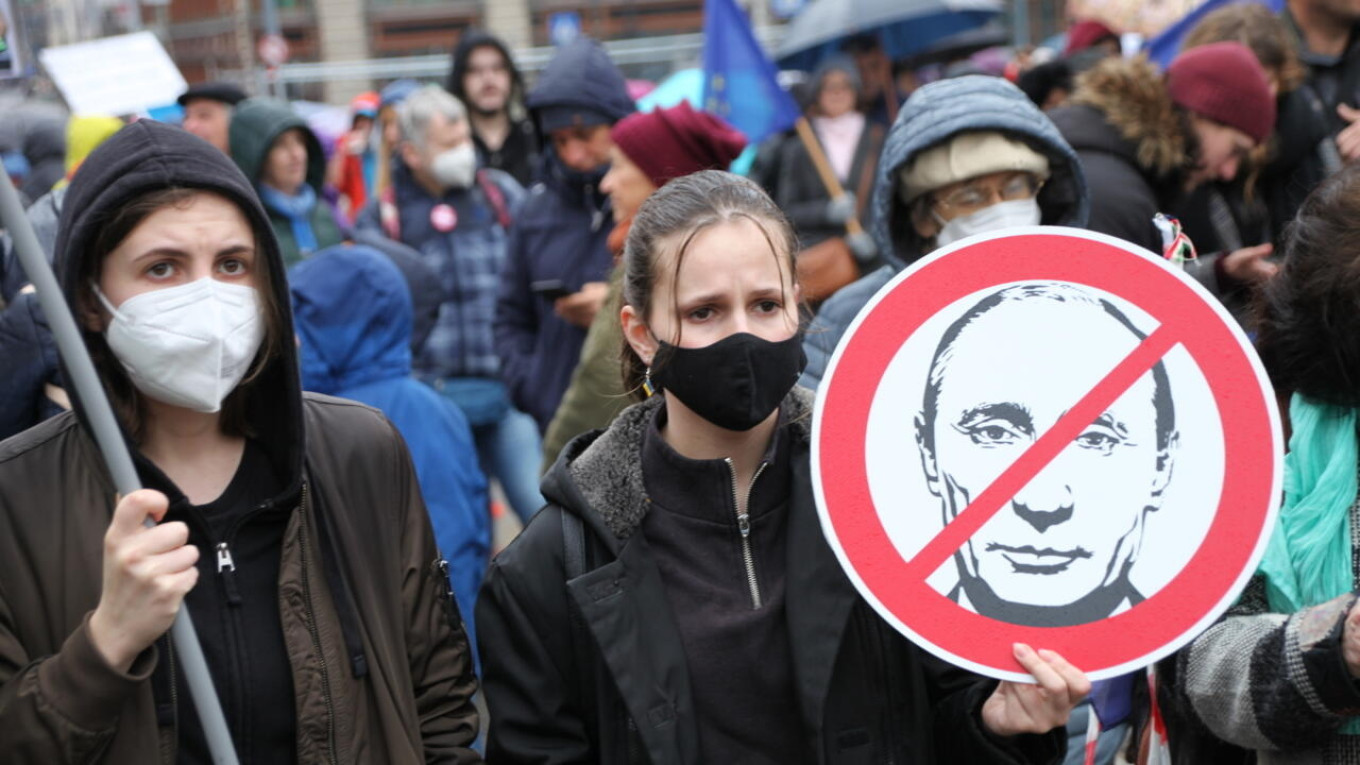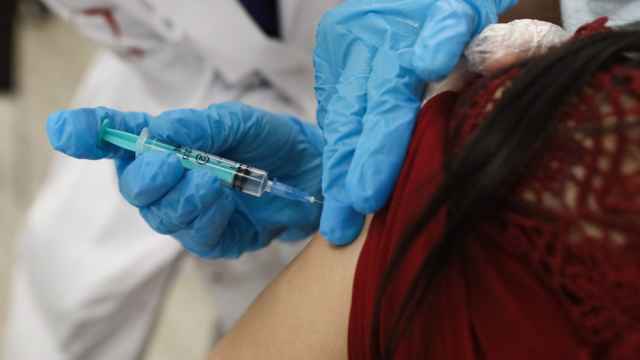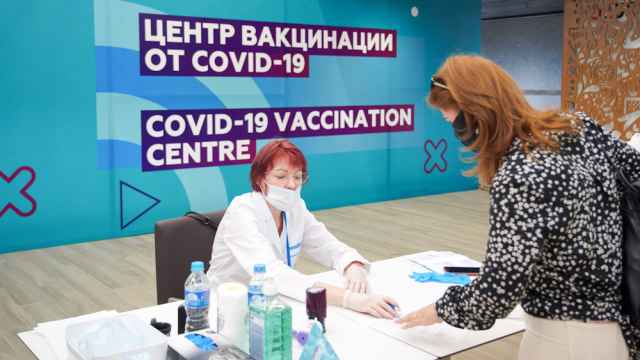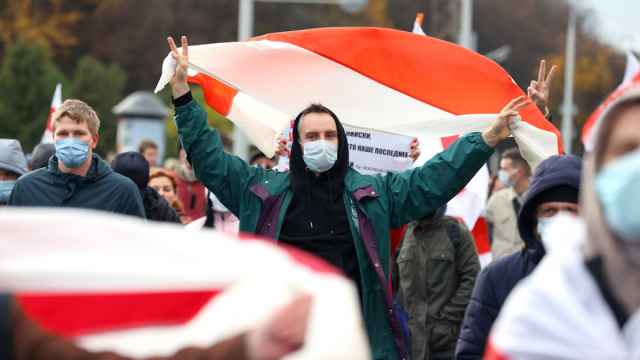Читайте русскую версию здесь.
On Tuesday, we presented in Paris what our colleagues recently wrote about in The Moscow Times: an independent Russian think tank that would offer concrete solutions to counter President Vladimir Putin and his aggression against the free world — solutions that take both Russian politics and the worldview of the Russian elite into account.
The Center for Analysis and Strategies in Europe (CASE) begins its work by publishing and discussing a report on the current state of the Russian diaspora in Europe and the possible strategy of the Western authorities toward Russian wartime emigres, or relokanti, as they call themselves.
Rather than retread the contents of our report, we will focus on some points that, by the middle of the third year of the war in Ukraine, seem obvious to us.
First of all, it should be noted that this war did not split Russian society or provoke a powerful anti-regime movement. In fact, it has seriously boosted anti-Western sentiment inside Russia. Western authorities’ policies, which have sought to support anti-war and anti-Putin Russians, appear understandable and noble, but are hardly capable of achieving serious changes in Russian politics — neither now, nor even in the medium term.
Meanwhile, the war has prompted not just the emigration of thousands who strongly disagree with the regime, but also the departure of at least 1 million Russians whom the war simply prevented from living a normal life.
These people who did not intend to emigrate at the time of their departure (which is why they still consider themselves relokanti, emphasizing the temporary nature of their departure and their self-identification as part of Russian society), do not always settle down in their new countries of residence. Bloomberg recently reported that up to half of those who left have returned to Russia, which is one of the reasons for Russia’s economic recovery in 2023.
This, according to surveys we commissioned, applies much more to the CIS, Turkey and Southeast Asia than to Europe — but we believe that the West has failed to form an adequate strategy to deal with Russian “re-location.”
The war is dragging on, and the conflict between the Kremlin and the Western world has every chance of lasting for decades. It is time for Western politicians to stop treating Russian relokanti as “ideologically close” bearers of liberal values, but to perceive them as an important human resource capable of contributing to the economic development of European countries on the one hand, and depriving Vladimir Putin of significant opportunities on the other.
For two and a half years, the West has been trying to block the inflow of money and high-tech goods to Russia with sanctions but has done nothing to stimulate the outflow of both financial resources and human capital.
The latter, we believe, can be achieved without losses for Europe. The experience of both post-Soviet countries and, for example, Cyprus (which in recent years has sharply liberalized the rules of stay and citizenship for Russians willing to do business on the island) shows that relokanti bring a lot of money and a wave of entrepreneurship to new countries. Not to mention the fact that relokanti are often more “European” than EU residents themselves, as they know the true value of freedom and the rule of law, and can also adequately assess the demagoguery of leftists and Putinversteher.
It seems to us, therefore, that the West should view the treatment of Russian diasporas in the context of economic rather than political struggle against Putin’s dictatorship. Today, even Russian officials admit that the country’s labor shortages have become a major problem — and our surveys underscore the fact that Russian relokanti in Europe are almost a decade younger than the average Russian, three times more educated and far more entrepreneurial.
If the European authorities adopted a coherent strategy that would radically simplify Russians’ emigration to the EU on the condition of their permanent residence in the country of declared stay and would be ready to accept any amount of capital exported from Russia — granting relokanti the right to work and all other economic rights except for the right to social benefits and privileges — then Europe could accept up to 3 million Russians with a capital of at least 400-500 billion euros, ready to fit into the modern global world, in just three to five years.
Europeans are already starting to realize this. Starting June 1, Germany introduced a new type of residence permit for labor migrants from in-demand professions that does not even require an invitation from the hiring organization. In the case of Russia, the expansion and publicity of such a policy would ensure not only the growth of the European economy, but also the shrinking of Putin’s “economic miracle.”
Yes, this kind of policy would not quickly and surely put Russia on the Western path of development — rather, it would entrench the method of “individual solutions to systemic contradictions” to which Russians have long been committed.
Still, we believe that the formation of a community of European Russians in Europe is a crucial contribution to the free future of Russia. Many of them will return there if Putin’s system proves to be less long-lived than the Soviet one, bringing with them new social practices that cannot be taught in political education courses or schools of democracy. The experience of Czechoslovakia, which tens of thousands of people left after 1968 and found themselves in the post-communist Czech Republic, speaks volumes.
Putinism can be defeated — but to do so, we need to convince a significant number of Russians that the Western world does not treat them as enemies. The easiest way to do this is to open the way for as many of our compatriots as possible to incorporate themselves into this world — which would be the most powerful anti-Kremlin, but not anti-Russian, sanction.
A Message from The Moscow Times:
Dear readers,
We are facing unprecedented challenges. Russia's Prosecutor General's Office has designated The Moscow Times as an "undesirable" organization, criminalizing our work and putting our staff at risk of prosecution. This follows our earlier unjust labeling as a "foreign agent."
These actions are direct attempts to silence independent journalism in Russia. The authorities claim our work "discredits the decisions of the Russian leadership." We see things differently: we strive to provide accurate, unbiased reporting on Russia.
We, the journalists of The Moscow Times, refuse to be silenced. But to continue our work, we need your help.
Your support, no matter how small, makes a world of difference. If you can, please support us monthly starting from just $2. It's quick to set up, and every contribution makes a significant impact.
By supporting The Moscow Times, you're defending open, independent journalism in the face of repression. Thank you for standing with us.
Remind me later.












